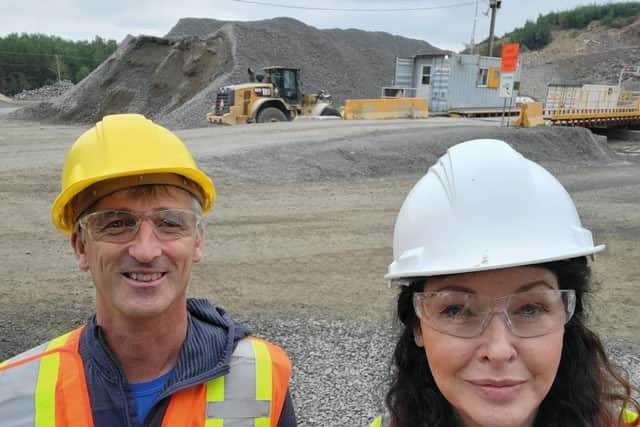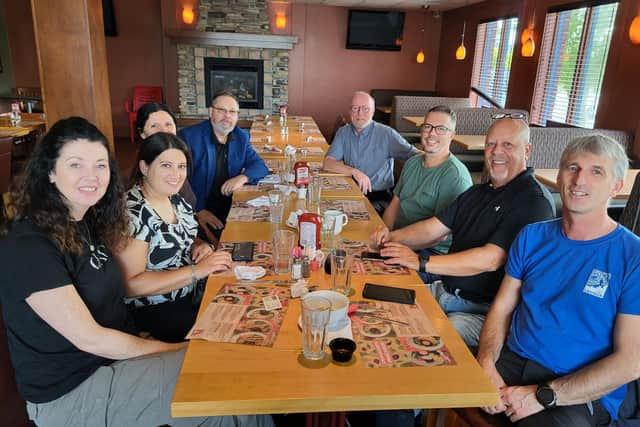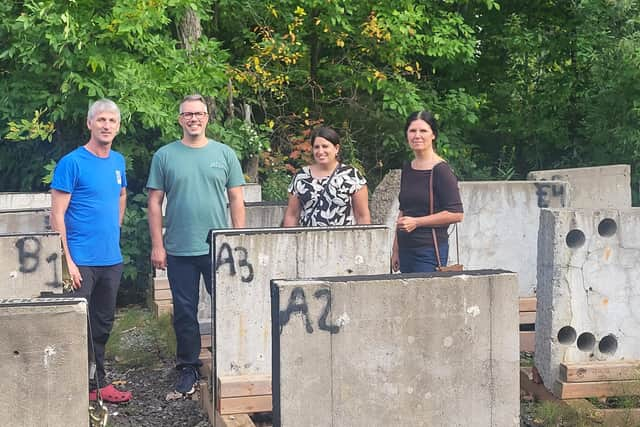Defective Blocks research exploration to Canada by Ulster University hailed a huge success
and live on Freeview channel 276
The research trip was funded by Knowledge Acquisition and Foresight Activities (KAFA) through the Connected NI project at Ulster University.
Professor Dunlop said: “We can’t thank Professor Benoit Fournier, Professor Josèe Duchesne and the wider research team from the Department of Geology and Geological Engineering at Laval University for hosting us and for organising meetings and site visits to ensure we got the most out of our knowledge exchange visit.”
Advertisement
Hide AdAdvertisement
Hide Ad“We spent the week discussing and planning the ongoing research we are doing collaboratively as part of our €500,000 Geological Survey of Ireland funded project, where we are investigating the fundamental causes of concrete block failure in Donegal.


"The team at Laval are at the forefront of testing aggregates for problematic minerals and we had a chance to see first hand the cutting-edge experiments that are being done on Donegal aggregates in Laval’s world class laboratories and the discussing preliminary results from the tests.”
“Additionally, we went on a field visit to Trois-Rivières, a city between Quebec City and Montreal where 8000 homes have been destroyed by pyrrhotite that was in the aggregates used to make their concrete foundations. These aggregates came from the Askimo quarry near the city and full access to the quarry was facilitated by the owner and their expert geologist who was happy to show us around the various quarry sections and provide us with as many samples as we wanted to take with us. We learnt about the long history of research collaboration between the quarry owner and the Laval research team to try and better understand the problem that occurred in the Trois-Rivières, and this research is now helping to underpin the Canadian standards for concrete production to try and ensure another pyrrhotite disaster does not occur elsewhere in Canada.
"This is very different to what is happening here in Ireland where access is hard to get or is not allowed by the operator”
Advertisement
Hide AdAdvertisement
Hide AdDr Eileen Doherty said: “During our trip we had the opportunity to meet with a number of other stakeholders who have significant experience and knowledge of how this crisis unfolded in Canada.


"Some of these lessons are of significant value to our ongoing research here in Ireland. Of note was the meeting and detailed discussions we had with Professor Michel Pigeon, former chancellor of Laval University and former elected member of the Canadian parliament.
“Michel has significant knowledge and experience of this issue. He is one of the foremost scientists in the area of ‘freeze/thaw’ in concrete and has written and published extensively on this issue. He has also recently completed his second doctorate in sociology so has a keen interest on how this crisis is impacting upon both Canadian and Irish society. A number of areas of research were identified for potential research collaboration and discussions will continue over the next few weeks and months.
“Additionally, our meeting with the group who represent victims of the pyrrhotite issue in the Trois-Rivières area of Canada ‘Le Coalition d’aide aux victimes de la pyrrhotite’ was incredibly insightful.
"The parallels between our experience and theirs was quite hard to comprehend. There are so many similarities both in terms of how both governments reacted initially and how things have ‘played out’ at a local level. One area that was quite different however, was the speed at which the Canadian Government reacted in getting homes fixed once the problem was identified. In this area, there is a stark contrast to how the Irish Government handled this issue and one we plan to examine in greater detail.


“We have invited members of this coalition to visit Ireland to share their experience in the near future.